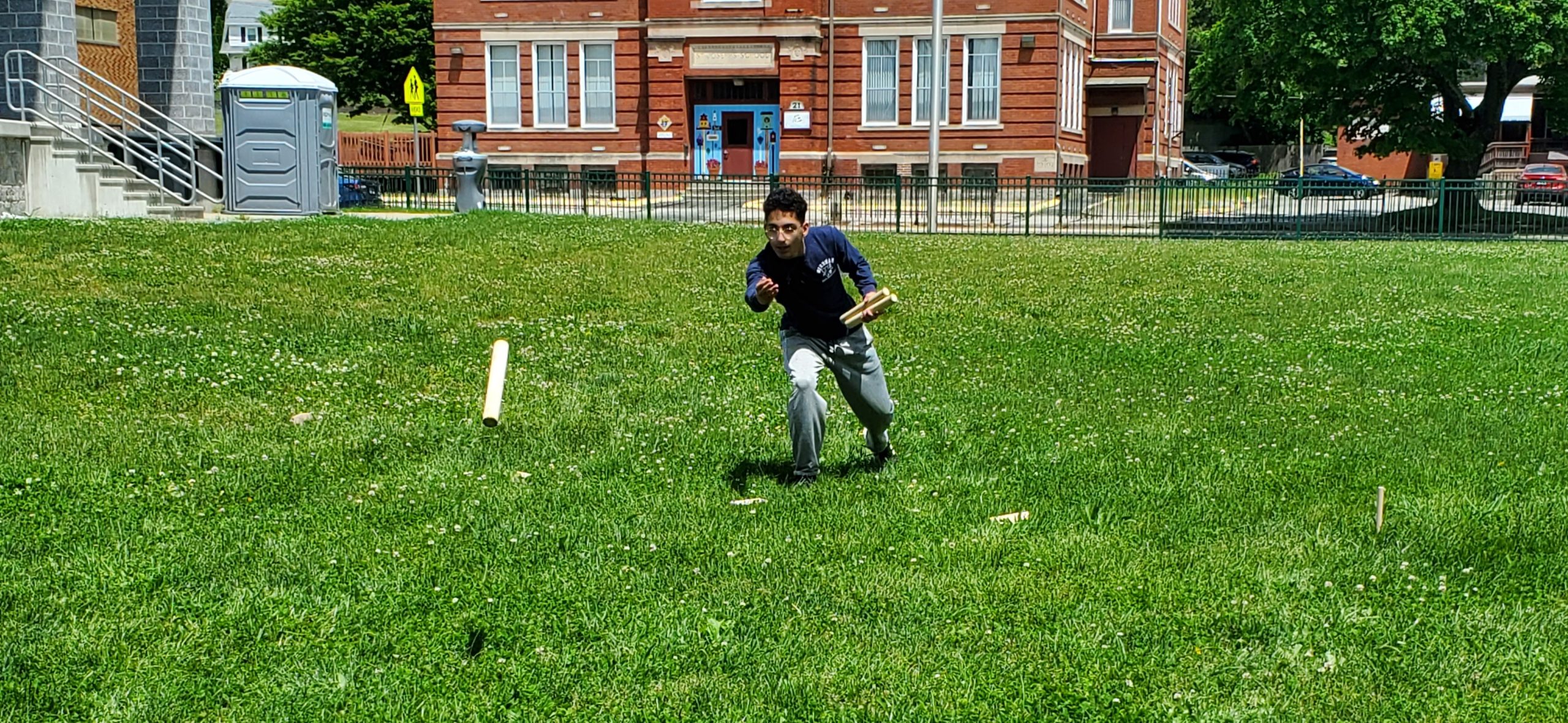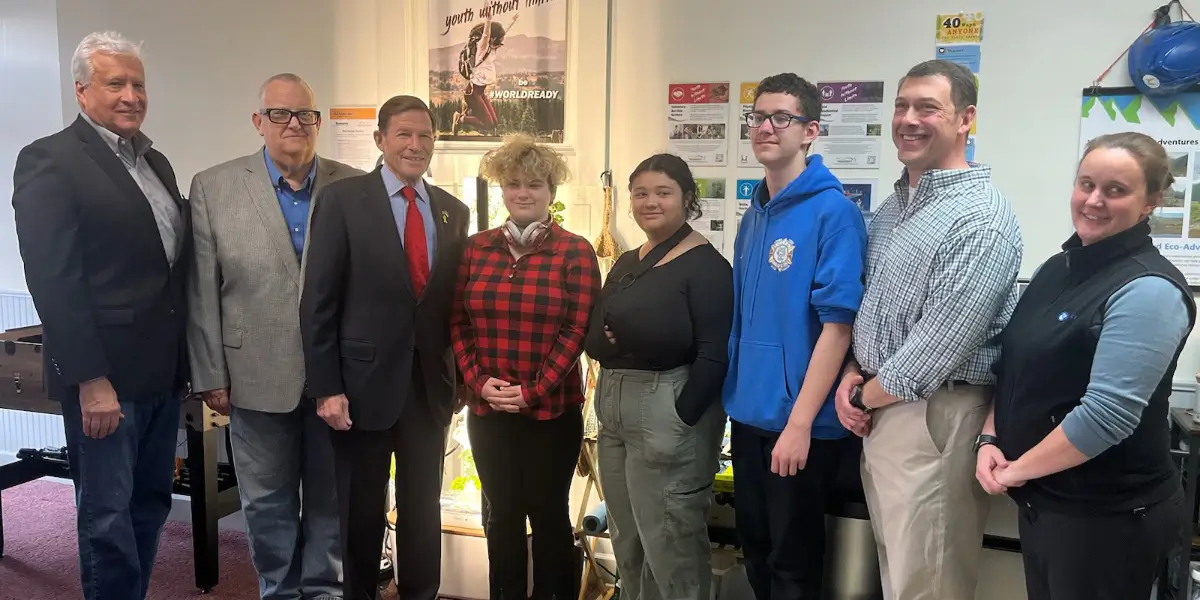Why Imo: COmmunity and Connections
The essence of Imo lies in it’s drive to serve the community and facilitate connections. A quote that encapsulates Why Imo is, “Project Imo… I think I’ve always envisioned this as a chance to serve the community…building a charitable organization that helps people connect to the things they need and want to create their journey.” This highlights our foundational goals of aiding individuals in crafting their life paths through community support and resources. Spoken directly by the Executive Director Jason Hyland in first edition of “Trail Notes at Base Camp” podcast, a working title. Here is the full episode.
Here is the snippet from our new podcast
Other Highlights
Inclusivity and Access
The importance of providing access to those who might not have it is a critical aspect of Imo’s mission. It was mentioned by Operations Director Mark Flynn when asked about why Imo, “Being able to give people that access point was a huge factor of my why of why I started and why I continue to do as much as I can for Project Imo.” It is clear that there is a dedication to inclusivity and ensuring opportunities for growth and learning for the community and the youth.
Adventure and Learning
The concept of adventure being both a literal and metaphorical journey for personal growth is a reoccurring theme. The notion from our Education Director David Howes, “Adventure is the word that stands out…that journey can be right in your own backyard…discovering that there are adventures right here in their own community” Which is a perfect illustration of the broad spectrum of experiences that Imo seeks to provide, emphasizing learning through exploration and discovery.
Youth Empowerment
Central to Imo’s philosophy is the belief in youth-led change and learning. Reflecting on the organization’s name and mission, “it still comes back to youth-led change and youth-led culture shift…youth have a lot to offer as teachers.” Capturing that essence of our commitment to valuing and fostering the potential within young individuals to contribute significantly to society and themselves.
Personal Growth and Leadership
The discussion on personal development and leadership resonates deeply with Imo’s objectives. A poignant observation was, “first you lead yourself and then…along the way…you do need some allies and some mentors.” A strong emphasis on our role in not only nurturing individual growth and self-reliance but also in creating a supportive network that facilitates this development.
The Power of Community Support
The importance of collective effort and community support will always be a core theme. Highlighting this, “every single person in a community has something to bring…we are successful based upon each other.” This completely underscores Imo’s belief in the strength of community collaboration and the impactful changes that can happen from community engagement and contribution.
Origin of the Name
In 1948, three Japanese scientists embarked on a long-term study of wild Japanese macaques (Macaca fuscata) on Koshima Island. Their strategy involved leaving food, including sweet potatoes, on sandy beaches to observe the monkeys’ behavior. Among these macaques was an 18-month-old named Imo, who unwittingly sparked a remarkable change.
In September 1953, Imo did something extraordinary. Instead of wiping the sand off her sweet potato with her hand, she washed it in a river. Her innovative approach to problem-solving caught the attention of the scientists.
Imo’s intelligence was not confined to her. She taught her siblings and even her parents to wash their food. This behavior transfer from offspring to parents was an unusual occurrence in nature. Imo’s creativity didn’t stop there – she began dipping her washed potatoes into the ocean before eating them, revealing a preference for the taste of salty potatoes.
The impact of Imo’s actions went beyond her immediate family. Gradually, the entire troop adopted the potato-washing behavior. By 1962, an overwhelming majority of monkeys over two years old on Koshima Island were washing their food.
Imo had fundamentally transformed their community.
Hirata, S., Watanabe, K., & Kawai, M. (2001). “Sweet-potato washing” revisited. In T. Matsuzawa (Ed.), Primate origins of human cognition and behavior (pp. 487-508). New York, NY, US: Springer-Verlag Publishing.
What does this look like in action
At Base Camp we now have regularly scheduled programming and weekly nights in which the Teen Center is open to the community youth. It is in this location participants have access to the “Sparkspace” or “Spark Space” unsure if we are using it as one or two words just yet. A makerspace offering access to a wide array of tools and resources for exploring fields such as media, manufacturing, arts, and agriculture, among others. This space opens doors to learning experiences and opportunities otherwise unavailable. To help spark innovation and ideas.
A few highlights in our programs that you should definitely explore on here:
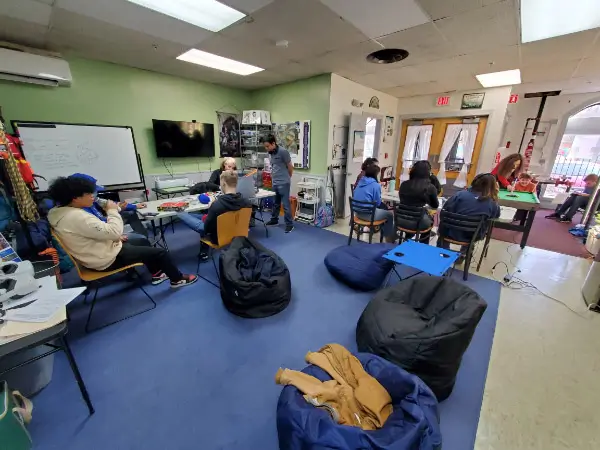
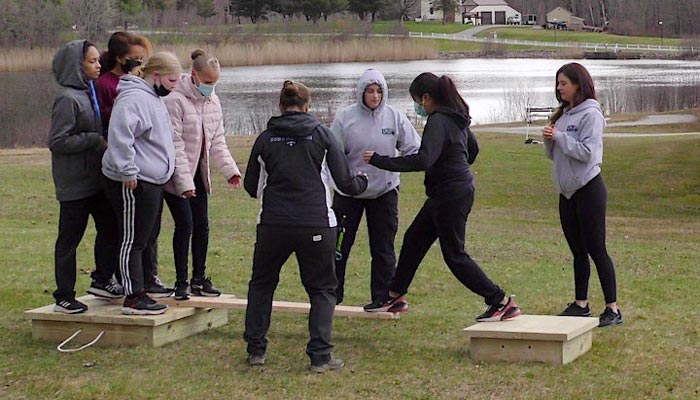
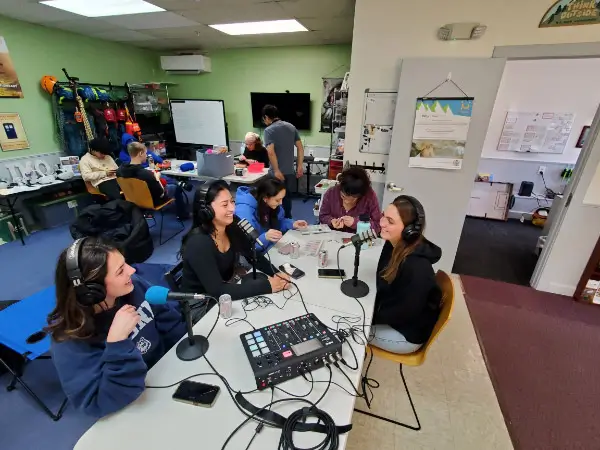
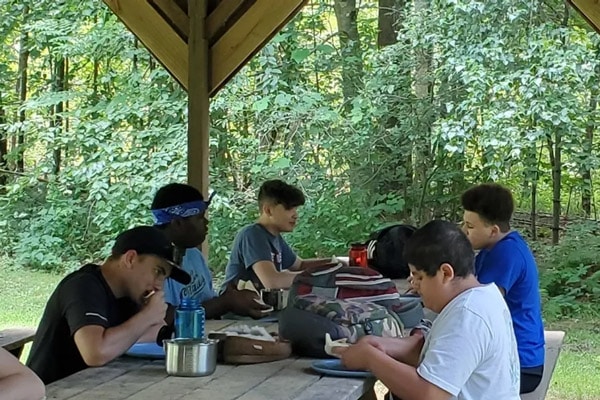
If you have any questions reach out to us!
Follow us on Facebook, Instagram, Youtube, or Linkedin
Send us a message at teamimo@projectimo.org or fill out a form on out website!
Call us (860) 786-5799 for partnership inquires or how to get involved.

